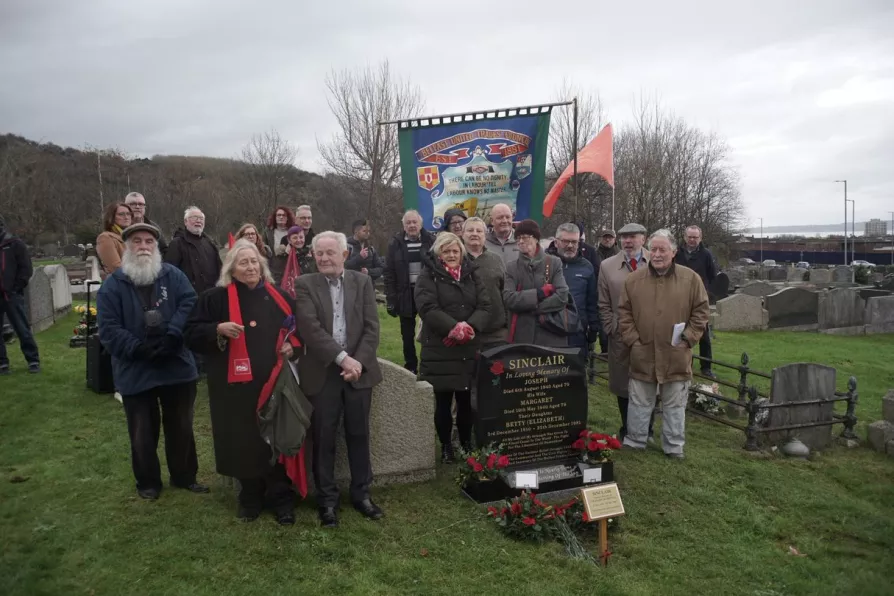LUKE FLETCHER outlines Plaid Cymru bold plans for wide-ranging policy consultations with trade unions in Wales

 Family and comrades of Betty Sinclair gather to unveil a new headstone to the legendary communist activist at Carnmoney Cemetery in Belfast, December 3 2022
Family and comrades of Betty Sinclair gather to unveil a new headstone to the legendary communist activist at Carnmoney Cemetery in Belfast, December 3 2022
BETTY SINCLAIR was born into a Church of Ireland, working-class family in Hooker Street, the Ardoyne area of Belfast. Her father was a worker in the Harland and Wolff shipyard and a “Walkerist” (pro-unionist) socialist; her mother was a reeler in Ewart’s mill.
The 1911 census shows that Betty lived with her mother Margaret, her father Joe and brothers William, Thomas and Joseph and her younger sister Ellen. It is thought that perhaps Joseph died at an early age as little is known about him.
As a young girl she lived for a short period with her aunt in Leeds, she described this as being a happy period in her life and found living in Leeds an improvement to Belfast.

JIM JUMP looks forward to the International Brigade Memorial Trust AGM taking place in Belfast later this week where the spirit of solidarity will be rekindled

Maggie Bowden was a trailblazing campaigning lawyer at Birnberg and Thompsons, women’s organiser of the Communist Party, and general secretary of Liberation

Why not pay a visit to Feile an Phobail, a people’s festival of community arts with roots in the days of internment without trial, and where the spirit of solidarity remains undimmed, says LYNDA WALKER











